Your behavior is a little thing that makes a big difference. Whether your toxic behaviors is a common occurrence, or just a once in a blue moon phenomena, it’s critical for your long-term happiness and success that you are able to recognize when you’re behaving negatively, and consciously shift your mindset when necessary.
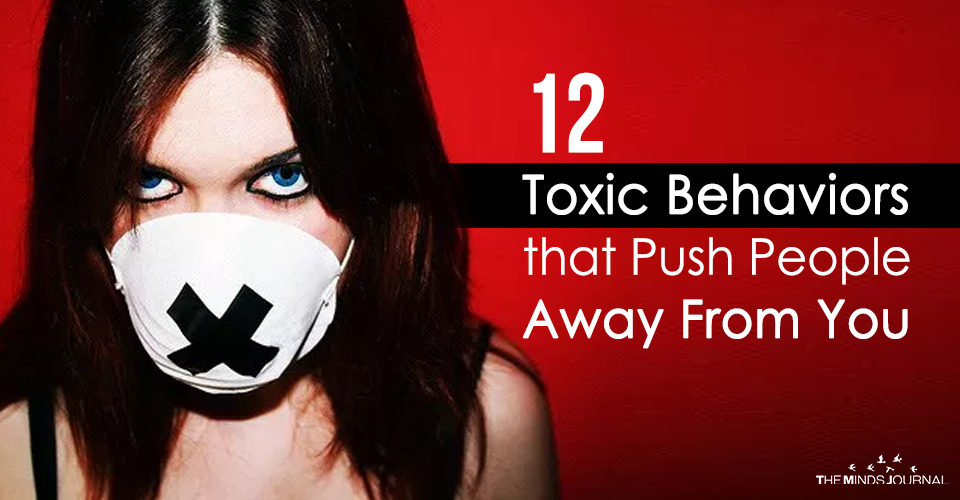
The twelve most common toxic behaviors we see are:
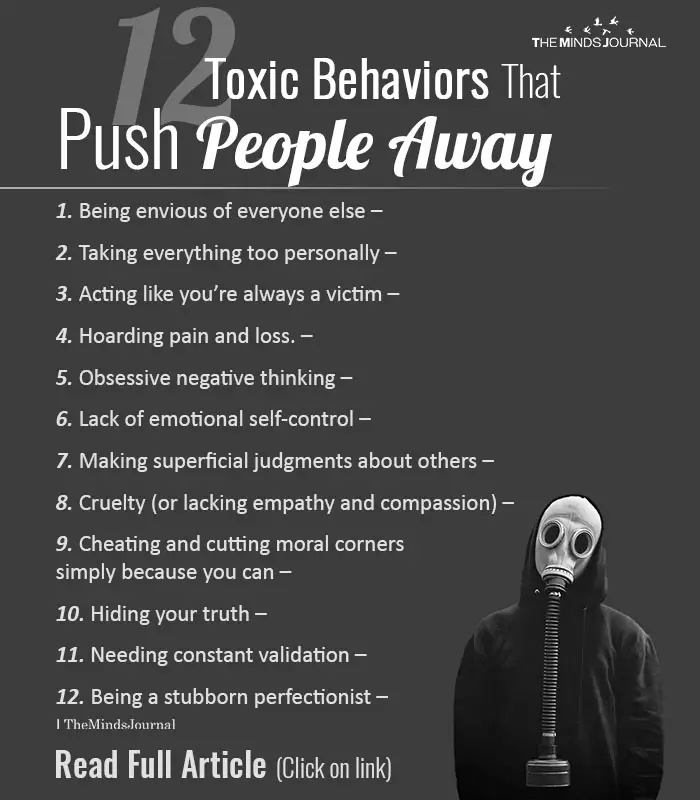
1. Being envious of everyone else –
Don’t let envy (or jealously) get the best of you. Envy is the art of counting someone else’s blessings instead of your own. There is nothing attractive or admirable about this behavior. So stop comparing your journey with everyone else’s. Your journey is YOUR journey, NOT a competition. You are in competition with one person and one person only – yourself. You are competing to be the best you can be. If you want to measure your progress, compare yourself to who you were yesterday.
2. Taking everything too personally –
People are toxic to be around when they believe that everything happening around them is a direct assault on them or is in some way all about them. The truth is that what people say and do to you is much more about them, than you. People’s reactions to you are about their perspectives, wounds, and experiences.
Related: How To Stop Taking Things Personally? Nine Tough Life Facts To Know
Whether people think you’re amazing or believe you’re the worst, again, is more about them. I’m not suggesting we should be narcissists and ignore all feedback. I am saying that so much hurt, disappointment and sadness in our lives comes from our taking things personally. In most cases, it’s far more productive and healthy to let go of other people’s good or bad opinion of you, and to operate with your own intuition and wisdom as your guide.
3. Acting like you’re always a victim –
Another toxic behavior is persistent complaining that fuels your sense of victimization. Believing you’re a victim, that you have no power to exert and no power over the direction of your life, is a toxic stance that keeps you stuck.
Related: The Truth About Victimhood That Can Heal and Set You Free
Working as a life coach with people who have suffered major trauma in their lives but found the courage to turn it all around, I know we all have access to far more power, authority, and influence over our lives than we initially believe. When you stop complaining, and refuse to see yourself as a helpless victim, you’ll find that you are more powerful than you realized, but only if you choose to accept this reality.
4. Hoarding pain and loss. –
One of the hardest lessons in life is letting go – whether it’s guilt, anger, love or loss. Change is never easy – you fight to hold on and you fight to let go. But oftentimes letting go is the healthiest path forward. It clears out toxic thoughts from the past. You’ve got to emotionally free yourself from the things that once meant a lot to you, so you can move beyond the past and the pain it brings you. Again, it takes hard work to let go and refocus your thoughts, but it’s worth every bit of effort you can muster.
5. Obsessive negative thinking –
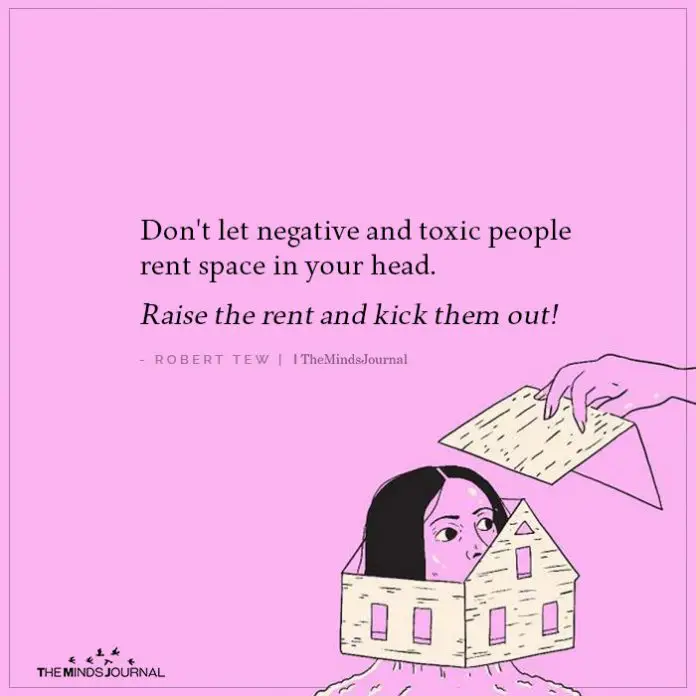
It’s very hard to be around people who refuse to let go of negativity – when they ruminate and speak incessantly about the terrible things that could happen and have happened, the scorns they’ve suffered, and the unfairness of life.
Related: How To Use The Law Of Attraction To Get Rid Of Negative Energy and Be Happy
These people stubbornly refuse to see the positive side of life and the positive lessons from what’s happening. Pessimism is one thing – but remaining perpetually locked in a negative mindset is another. Only seeing the negative, and operating from a view that everything is negative and against you, is a twisted way of thinking and living, and you can change that.
What are the signs you are dealing with toxic behaviours. Watch out this interesting video to know:
6. Lack of emotional self-control –
An inability to manage your emotions is toxic to everyone around you. We all know these people – those who explode in anger and tears over the smallest hiccup or problem. Yelling at the grocery store clerk for the long line, screaming at an employee for a small error she made, or losing it with your daughter for spilling juice on the floor.
If you find that you’re overly emotional, losing your cool at every turn, you may need some outside assistance to help you gain control over your emotions and understand what’s at the root of your inner angst. There’s more to it than what appears on the surface. An independent perspective – and a new kind of support – can work wonders.
Related: Negative Emotions Are Opportunities for Connection in Relationships
7. Making superficial judgments about others –
Don’t always judge a person by what they show you. Remember, what you’ve seen is oftentimes only what that person has chosen to show you, or what they were driven to show based on their inner stress and pain.
Alas, when another person tries to make you suffer in some small way, it is usually because they suffer deep within themselves. Their suffering is simply spilling over. They do not need punishment or ridicule, they need help. If you can’t help them, let them be.
8. Cruelty (or lacking empathy and compassion) –
One of the most toxic behaviors – cruelty – stems from a total lack of empathy, concern or compassion for others. We see it every day online and in the media – people being devastatingly unkind and hurtful to others just because they can. They tear people down online in a cowardly way, using their anonymity as a shield.
Related: How Sociopaths Hook Empathetic People – With False Innocence and Appreciation
Cruelty, backstabbing, and hurting others for any reason is toxic, and it hurts you as well. If you find yourself backstabbing and tearing someone else down, stop in your tracks. Dig deep and find compassion in your heart, and realize that we’re all in this together.
9. Cheating and cutting moral corners simply because you can –
Cheating is a choice, not a mistake, and not an excuse! If you decide to cheat, and you succeed in cheating someone out of something, don’t think that this person is a fool. Realize that this person trusted you much more than you ever deserved. Be bigger than that. Don’t do immoral things simply because you can. Don’t cheat. Be honest with yourself and everyone else. Do the right thing. Integrity is the essence of everything successful.
10. Hiding your truth –
People cannot connect with you if you’re constantly trying to hide from yourself. And this becomes a truly toxic situation the minute they become attached to your false persona. So remember, no matter what age, race, sex, or sexuality you are, underneath all your external decorations you are a pure, beautiful being – each and every one of us are.
We each have light to shine, and missions to accomplish. Celebrate being different, off the beaten path, a little on the weird side, your own special creation. If you find yourself feeling like a fish out of water, by all means find a new river to swim in. But DO NOT change who you are; BE who you are. Don’t deny yourself, improve yourself.
Related: The Honest Truth About Being Blissful
11. Needing constant validation –

People who constantly strive for validation by others are exhausting to be around. Those men and women who get caught up in the need to prove their worth over and over and over, and constantly want to win over everyone around them, are unintentionally toxic and draining. Know this.
Over-attaching to how things have to look to others can wear you out and bring everyone else around you down. There is a bigger picture to your life, and it’s not about what you achieve in the eyes of the masses. It’s about the journey, the process, the path – what you’re learning, how you’re helping others learn too, and the growing process you allow yourself to participate in.
12. Being a stubborn perfectionist –
As human beings, we often chase hypothetical, static states of perfection. We do so when we are searching for the perfect house, job, friend or lover. The problem, of course, is that perfection doesn’t exist in a static state. Because life is a continual journey, constantly evolving and changing.
Related: The Perfectionist’s Trap
What is here today is not exactly the same tomorrow – that perfect house, job, friend or lover will eventually fade to a state of imperfection. But with a little patience and an open mind, over time, that imperfect house evolves into a comfortable home. That imperfect job evolves into a rewarding career. That imperfect friend evolves into a steady shoulder to lean on. And that imperfect lover evolves into a reliable lifelong companion. It’s just a matter of letting perfectionism GO.
If you can relate to any of these toxic behaviors, remember, you are not alone. We all have unhealthy personalities buried deep within us that have the potential to sneak up on us sometimes. As stated above, the key is awareness – recognizing these behaviors and stopping them in their tracks.
Do you know of any other toxic behaviors? Leave a comment below:
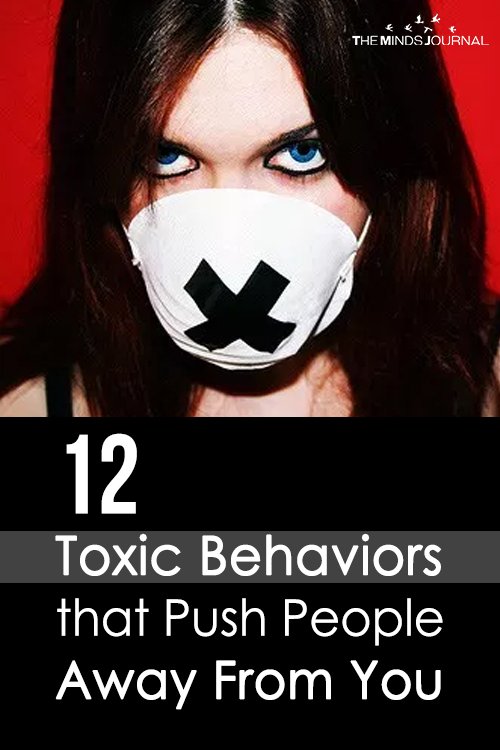
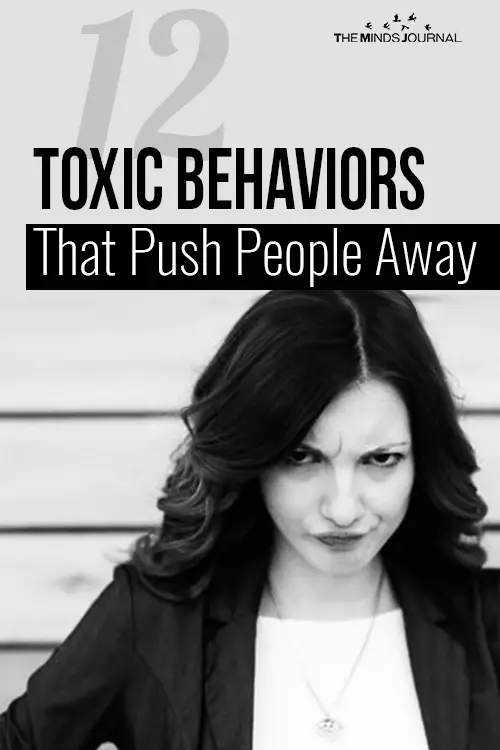
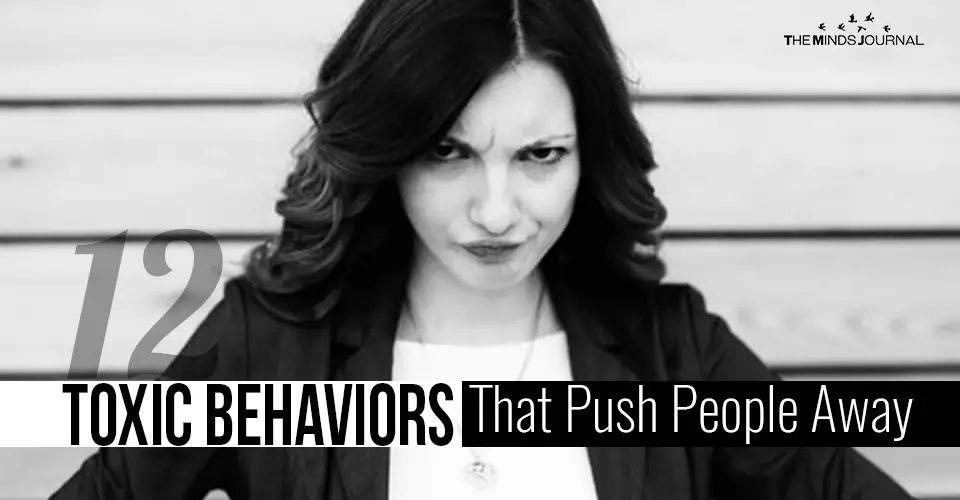







Leave a Reply
You must be logged in to post a comment.